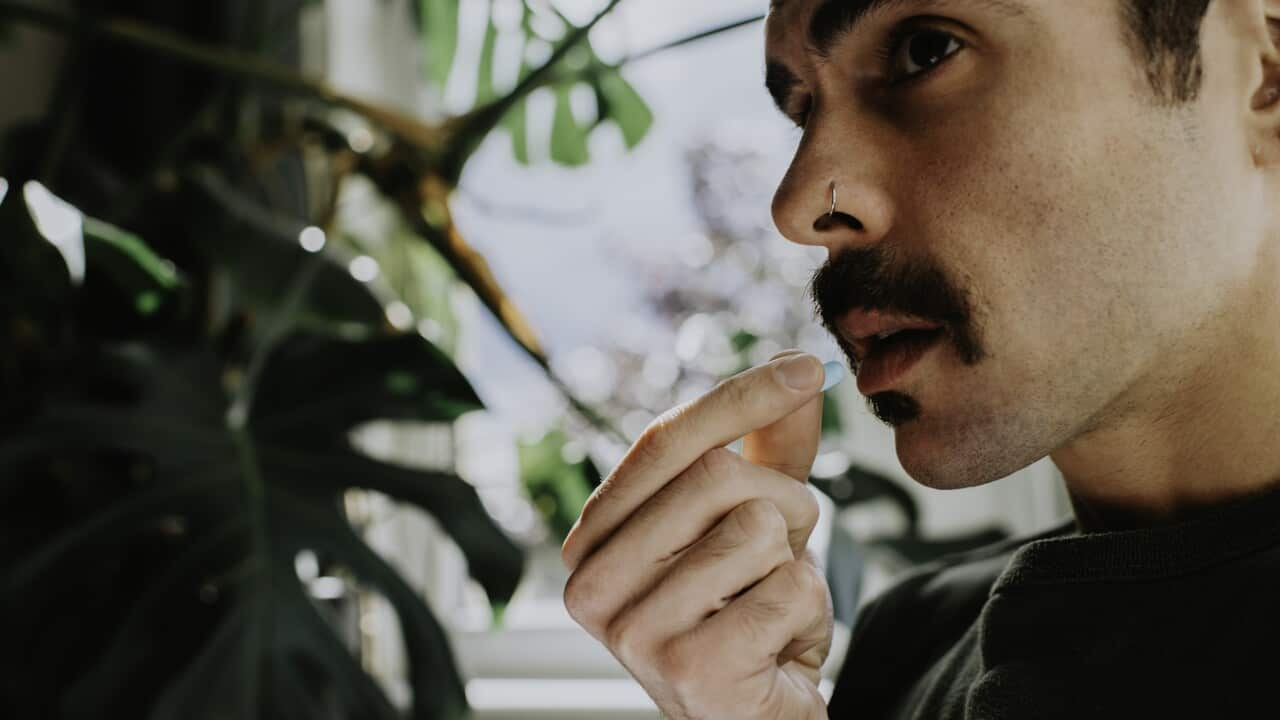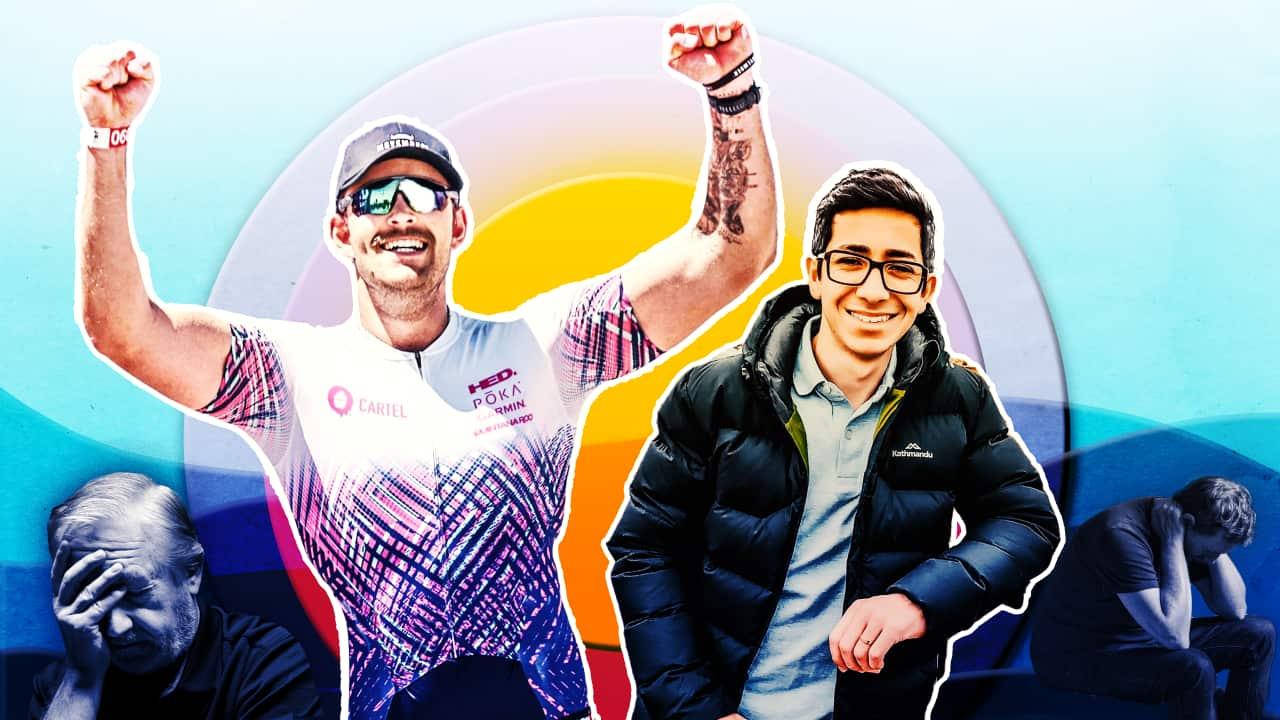SBS in Portuguese interviewed Brazilians living with HIV in Australia, Augusto, from Brisbane who has been living with HIV for over ten years and Carolina, from Byron Baywho received a positive result two years ago.
To protect the privacy of both, their names have been changed.

For those living with HIV, the stigma still exists. Source: Getty / Getty Images
In 2014, while still living in Brazil, Augusto began experiencing symptoms like diarrhoea and candidiasis. After undergoing several tests, including HIV tests, his first result came back as negative. However, his symptoms persisted, and a second test, delayed by three months, ultimately confirmed his fears.
“I was deteriorating. Some days I could go to work; other days, I felt too weak. My family inquired about my delayed results and discovered I was HIV positive. That’s how my journey with HIV began, still in Brazil,” he recalled.
Carolina decided to get tested in New South Wales after discovering her boyfriend had been cheating on her.
Initially, the doctor hesitated to request the test, arguing that she wasn’t part of high-risk groups. However, after insisting, she was tested.
“My discovery was shocking. It changed my life forever, because the result came back positive for HIV,” she shared.

NGOs around the world campaign to encourage people to be informed and take care of their health, in addition to reinforcing that HIV does not limit life. Credit: Ayo! Kit Bicara HIV/AIDS
My discovery was shocking and unexpected. I took the tests and this changed my life forever, as the result was positive for HIV.Carolina
Reaction to the Diagnosis: Always Seek Professional Help
Reactions to an HIV diagnosis vary. Augusto accepted it almost immediately, while Carolina faced deep distress, even contemplating suicidal thoughts.
“I accepted my condition and took care of myself. There are always doubts and stigmas, but over time, you learn to cope,” Augusto said.
Carolina, however, recounted, “it felt like the ground disappeared beneath my feet. I had no knowledge of HIV. I was on a student visa in a foreign country and thought it was the end of my journey and my Australian dream.”

Positive Life NSW is an NGO that helps people living with HIV Source: Getty / Getty Images
Augusto also found assistance: “I highly recommend the Melbourne Sexual Health Centre. They treated me with great care, provided free treatment when I was an international student, and even arranged an interpreter.”

An 'HIV Ambassador' at Mardi Grass, the carnival in Sydney Source: AAP
Those who follow antiretroviral treatment become undetectable, meaning their viral load is so low that it cannot be detected or transmitted. As a result, they can live completely healthy lives.
Both Augusto and Carolina are currently undetectable.
HIV doesn’t prevent you from studying, working, living a healthy life
As both our interviewees had to navigate diagnosis and treatment in and out of Australia fears of losing heir visas status always hanged over their heads.
Augusto, who is now an Australian citizen, shares his experience: “A Brazilian migration agent told me it would be impossible to get permanent residency as I am living with HIV. But I didn’t give up and sought a second opinion from a different agent, who was amazing and explained the steps I could take.”
Carolina successfully applied for permanent residency and soon will become a citizen.
The visa process wasn’t easy. For someone with HIV, you need a health waiver. My doctor confirmed I was undetectable, and with a specialist lawyer, we demonstrated that my condition wouldn’t affect my ability to contribute to the country.Carolina

HIV doesn't stop you from studying, working, or living a healthy, productive life
A serodiscordant relationship is when one partner has HIV, and the other does not. Both Augusto and Carolina are in such relationships.
“When I told my boyfriend in 2017, he said he didn’t mind and loved me the same way. The most important thing is that I continue my treatment, and we can have a completely normal life,” Augusto said.
Carolina added, “After my diagnosis, I started a relationship with a man who doesn’t have HIV. He helped me realise that HIV doesn’t define who I am and that our relationship could be completely normal as long as I follow my medical treatment.”

"I started a relationship with a man who doesn’t have HIV. He helped me realise that HIV doesn’t define who I am,": said Carolina Source: AAP
In a serodiscordant relationship, one partner is living with HIV and the other is not. Augusto and Carolina are in serodiscordant relationships where their current partners are not living with HIV.
Augusto told his boyfriend, when he met him in 2017, that he was a person living with HIV.
“When I told him about my serology, he said that he didn't care about it and that he loved me the same way. The most important thing is that I continue to do my treatment and then we could have a completely normal life, both of us being healthy and happy.”
“Soon after my diagnosis, I began a relationship with a man who is not living HIV-positive, and he was fundamental to my recovery process. He took care of me when I was depressed because of the diagnosis and he was the one who educated me about HIV. He made me realise that HIV doesn't define who I am, and that our relationship could be completely normal, as long as I get my medical treatment.”

Appropriate HIV treatment with medical supervision enables a safe pregnancy for both mother and baby. Credit: Digital Vision
With treatment and medical supervision, it is possible to have a safe pregnancy.
Carolina shared her dream: “I’m so excited I am able to have children! I take daily medication that suppresses the virus, making it undetectable, it won’t be transmitted to the baby.”
'Life doesn’t end when you are diagnosed with HIV: it’s a new beginning'
At the end of the podcast, Augusto and Carolina shared messages for those newly diagnosed with HIV.
“I’ve been living a normal life since I found out I was HIV positive about 10 years ago. Life doesn’t end when you discover you have HIV, it just reboots,” Augusto said. “I take my medication every day, exercise, and follow my treatment.”
“Although the diagnosis may be a shock at first, it’s possible to live a healthy and full life with the right treatment. Being well-informed opens the doors to effective treatments. My message is one of hope: yes, it is possible to live a completely normal life, even with HIV,” said Carolina.
HIV (Human Immunodeficiency Virus) can be transmitted through unprotected sex, sharing contaminated needles, and from an untreated HIV-positive mother to her baby during pregnancy, childbirth, or breastfeeding.
People living with HIV in Australia can find support, free medical treatment, and specialised services at various organisations across the country.
Queensland - Queensland Positive People (QPP) or Queensland Council for LGBTI Health Northern
Territory - NAPWHA Peer Support (National Association of People) with HIV Australia) South Australia - SAMESH (South Australia Mobilisation + Empowerment for Sexual Health)
Tasmania - Tasmanian Council on AIDS, Hepatitis and Related Diseases (TAScaHRD)
Canberra - HIV/AIDS Legal Centre (HALC) or Canberra Sexual Health Centre To listen, click the 'play' button on this page.












